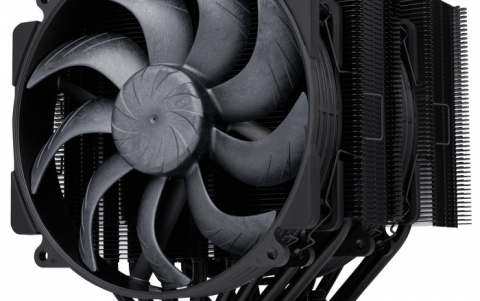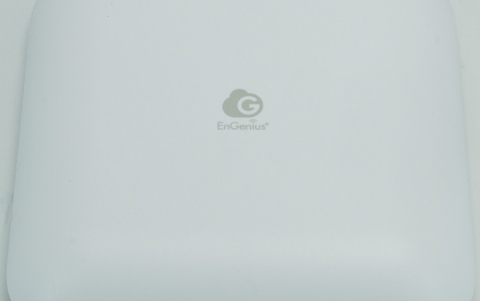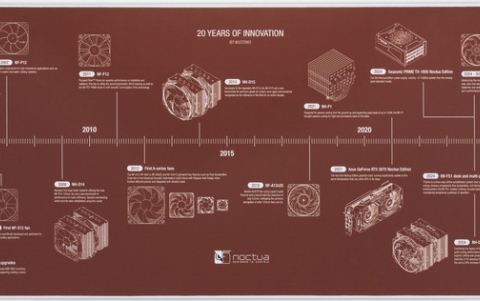Samsung 950 Pro M.2 512GB NVMe review
2. ATTO Disk Benchmark, CrystalDiskMark
Review Pages
2. ATTO Disk Benchmark, CrystalDiskMark
3. AS SSD benchmark
4. Anvil Storage Utilities
5. PCMark 7, PCMark 8
6. Summary
Testbed:
MOTHERBOARD: ASRock Z170 Extreme7+ ATX DDR4
CPU: Intel I7-6700K 4.00 GHz
POWER SUPPLY: Corsair HX1200i ATX12V
GRAPHICS: PNY GTX 980 4GB XLR8 Pro OC
MEMORY: Corsair Dominator Pl 32GB 2800
STORAGE: Intel 750 Series 1.2TB NVMe SSD
OS: Microsoft Windows 10 Home 64 Bit
We start our tests with the ATTO Disk Benchmark. The tool measures storage systems performance with various transfer sizes and test lengths for reads and writes. The benchmark performs file transfers ranging from 0.5 KB to 8192 KB. ATTO can be adjusted to do overlapped I/O, in a variety of queue depths. We tested the SSD using the benchmark's default settings, using 256KB file length performance and QD4. ATTO probably gives the most accurate results for compressible read and write data.
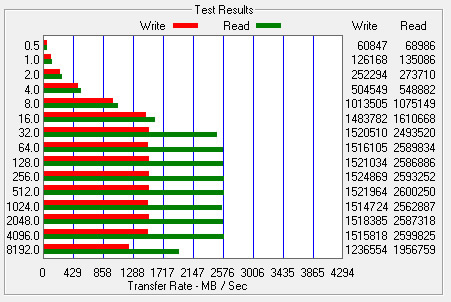
The ATTO results match listed specifications. The 512GB SSD attained 2.5GB/s read and 1.5GB/s write. Howevr, you can see a bit of a drop in the larger data samples (8MB), althoufgh the overall speed progression is smooth.
ATTO is another fairly straightforward test we ran that shows the sequential transfer rate improvements over the 850 Pro. Of course, the Samsung 950 Pro M.2 512GB NVME has no competition in the graphcs below:


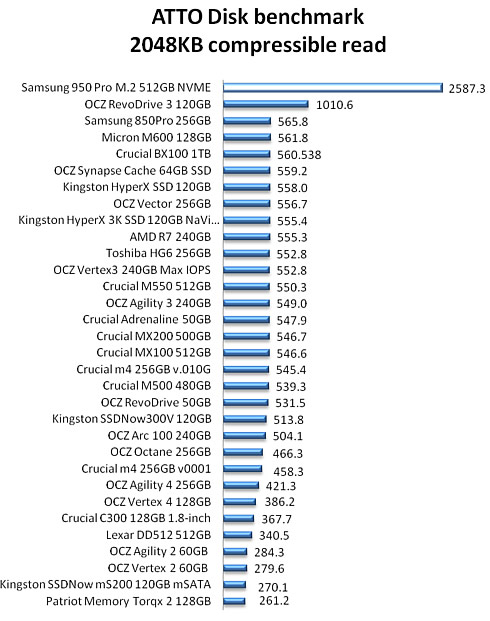
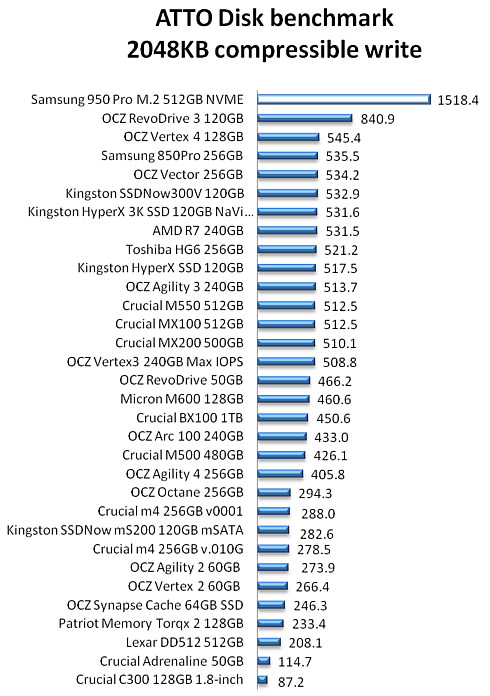
The next benchmark is the CrystalDiskMark. The software provides throughput data based on sequential reads and writes, and random (512K/4K/4KQD32) reads and writes of various sizes. It uses mostly incompressible data, and therefore provides a quick and reliable method to check disk performance.
In this test, the 950 Pro’s sequential read and write speeds actually exceed Samsung’s claims: the drive peaked at 2698MB/sec sequential read and 1540MB/sec write write:

The performance of Samsung's SSD was the same no matter if the stored/retrieved data is compressible or not.
In addition, low 4K random write performance above 200MB/s finally has become commonplace with SSDs.
Review Pages
2. ATTO Disk Benchmark, CrystalDiskMark
3. AS SSD benchmark
4. Anvil Storage Utilities
5. PCMark 7, PCMark 8
6. Summary











